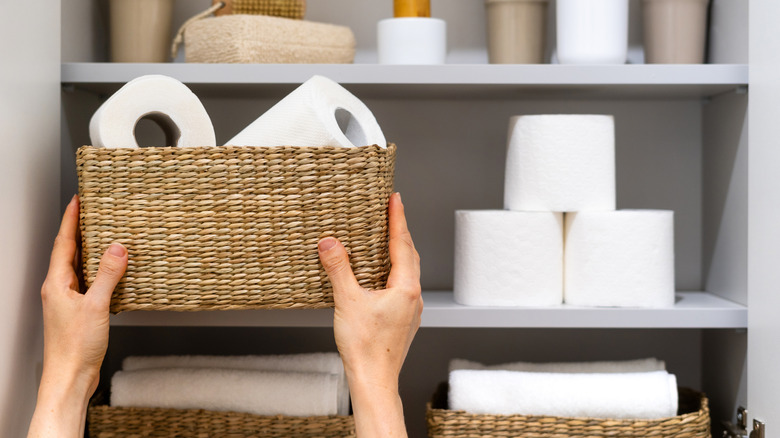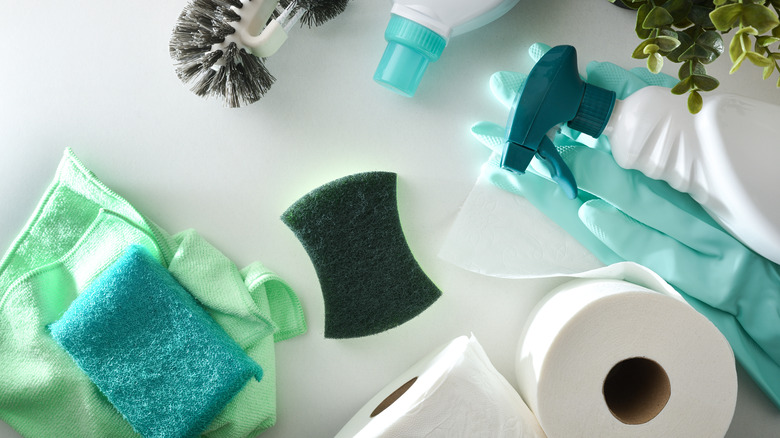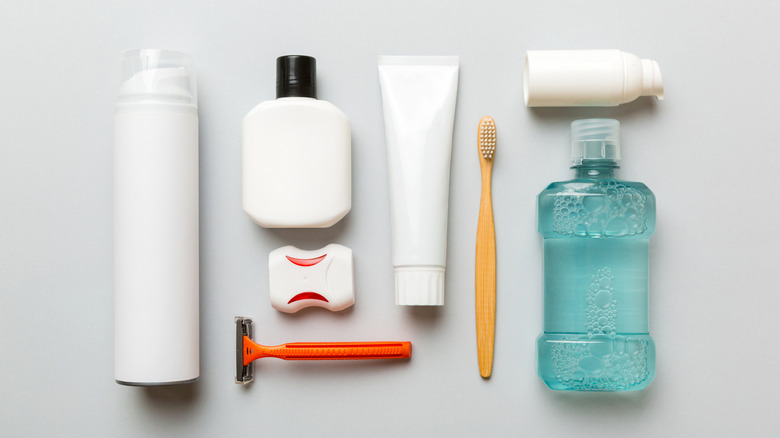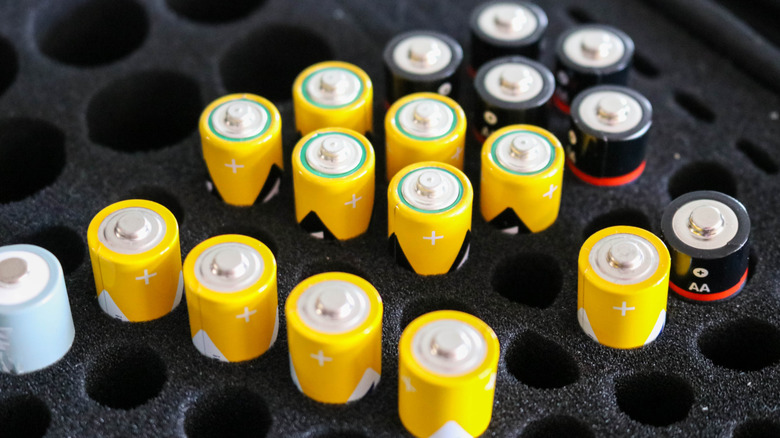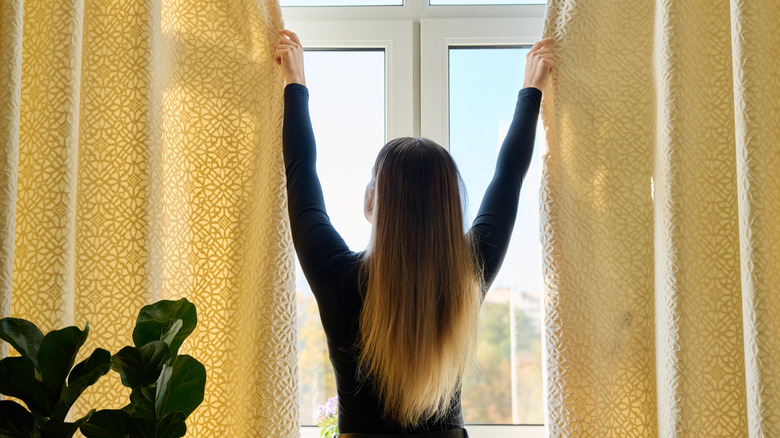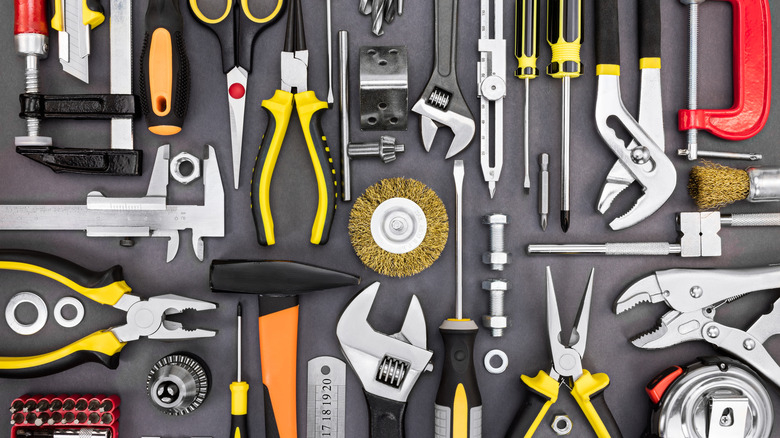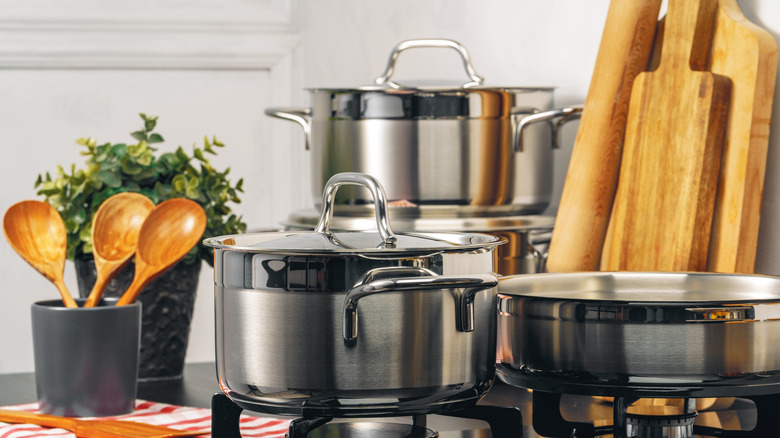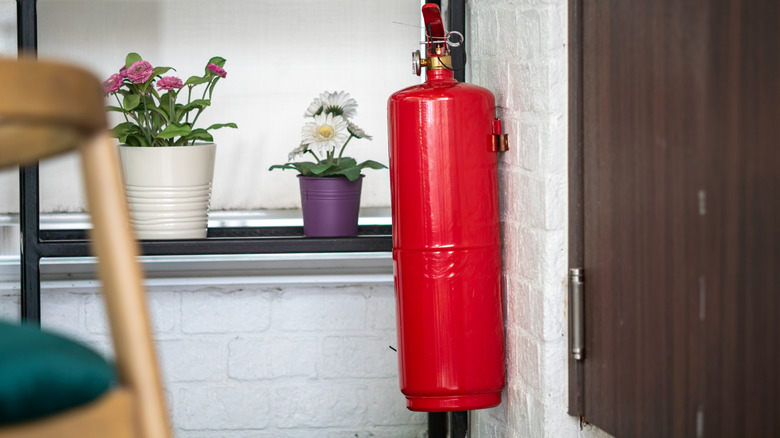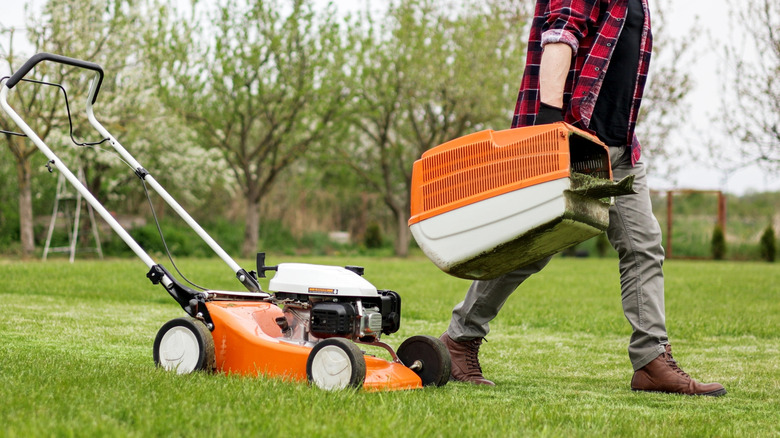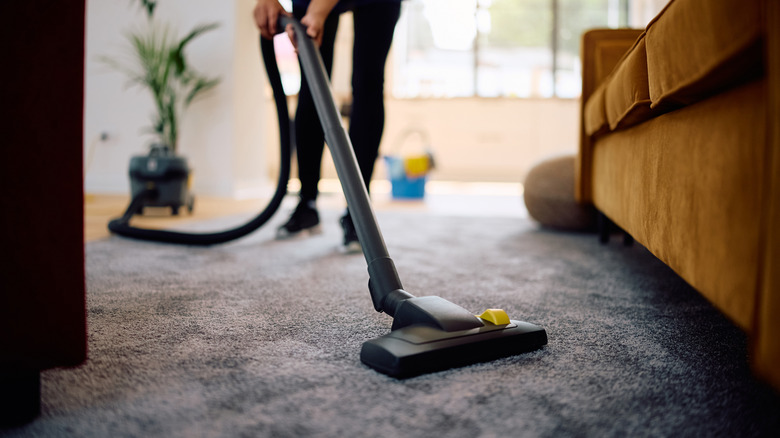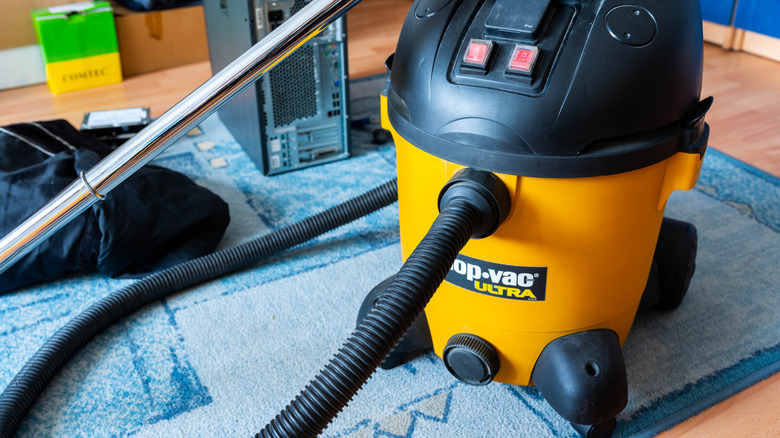11 Essentials You Need If You're A First Time Homeowner
Homeownership is a thrilling adventure towards independence and financial prosperity. Once those keys are in your hands, a world of freedom opens up for you. But that also comes with an abundance of new responsibilities. Gone are the days of having a landlord to lean on when a pipe bursts. Now you're in charge of everything from routine maintenance to emergency repairs. It's an intimidating transition for many first-time homeowners. Get ahead of any lingering anxiety by preparing all the essentials in advance.
The period leading up to closing day brings about a whirlwind of moving pieces and a daunting checklist of obligations. It's easy to overlook important little things you may need to settle into a new home on moving day. Not to mention, there are also plenty of essentials you might not even have on your radar when you embark on your journey as a homeowner. From the small details to major first-time purchases, we'll help you cover your bases for the most seamless transition into your new life as a homeowner.
Toilet paper and paper towels
As silly as it sounds, it's easy to forget about the basics in the midst of closing on your first home. Be sure to stock up on plenty of toilet paper and paper towels as soon as you get your keys. The last thing you want is to get caught in the bathroom without toilet paper. Paper towels are also helpful as you move your belongings in and stumble across areas that could use a quick spot clean.
Cleaning supplies
You likely already have an arsenal of cleaning supplies handy if you're transitioning from renter to homeowner. This is a great time to stock up and upgrade your inventory. Keep your cleaning supplies readily accessible on moving day so you can address any messes that may pop up. Trash bags, disinfecting wipes, all-purpose cleaner, rags, a broom, and a mop are all essentials you should have handy.
Personal care items
Personal care items are another category of essentials you may overlook in the midst of moving day chaos. After a long day of juggling boxes and struggling to bring in furniture, realizing your toothbrush and face wash are buried under a mountain of your belongings can be a devastating blow. Be sure to keep any of your personal care essentials in an accessible place when you're moving in. Consider keeping them in an overnight bag so they don't get mixed in with other boxes.
Batteries
Batteries are one of those essentials we often don't think of until the very moment we desperately need them. Get ahead of this issue before you even move in by stocking up on AA and AAA batteries at the very least. It might be helpful to have some 9V batteries handy for smoke detectors as well as coin batteries for security sensors and key fobs. Consider building out a battery organizer with all the different kinds you need so you won't find yourself running to the store to get some while you're moving in.
Window covers
Window covers are another necessity that might slip your mind as a new homeowner. While older homes may have existing window covers, many new builds may not. It can feel vulnerable and intrusive to spend the first night in your home with the windows completely uncovered. Even if you're considering installing custom blinds or shades down the line, don't forget to buy at least a temporary window cover solution as you settle into your home.
A complete tool box
As a renter, you may be less inclined to keep a fully-stocked toolbox. But homeownership requires a lot more hands-on maintenance. It's significantly cheaper and more time-efficient to keep tools for basic repairs rather than call a professional every time something comes up. Tools every homeowner should have include a hammer, screw driver, drill, wrench, and level. Once you cover the basics, you can slowly build up your arsenal of more specialized tools.
Kitchen essentials
As you begin to unpack and piece your new living space together, you'll want to have your kitchen essentials in order as soon as possible. While eating out for the first night or two after a move can be fun, it quickly weighs on your body and wallet. Be sure to come prepared with pots, pans, silverware, and flatware. You should also make sure you have all the small appliances you may need, such as a toaster and microwave, to prepare meals efficiently.
Fire extinguisher
Home safety is a necessity whether you're a renter or an owner. However, once you're responsible for your home as an asset, the importance of maintaining safety reaches a whole new level. According to the National Fire Protection Association, there are roughly 358,000 house fires every year in the United States. From kitchen fires to electrical fires, it's a reality you should bear in mind as a homeowner. A small flame can quickly spread into an uncontrollable blaze without intervention. Keeping a fire extinguisher in your home can be the difference between minor damage and losing your home.
Lawn mower and other landscaping equipment
Renters seldom concern themself with extensive yardwork — especially if they live in a townhome or apartment. But as a homeowner, it's your duty to maintain a pristine landscape. Once you're settled in, start shopping around for a lawn mower. You should also consider buying a string trimmer, hedge trimmer, and pole saw for easier lawn maintenance. Some other helpful tools to have on hand are a rake, pruning shears, a shovel, and a hose.
A quality vacuum
When you upgrade your home, you may also want to upgrade your vacuum. While a basic vacuum can get the job done in most cases, it's always nice to optimize your cleaning routine where you can. If you're moving from a smaller townhome or apartment into a larger home, cleaning is going to take more time and energy. Save yourself the hassle by upgrading to a more powerful vacuum. Not only will a nicer vacuum be more durable and effective, but it can also capture harmful dust and dander better than a basic vacuum.
Wet vac
Water damage is a nightmare that, unfortunately, many homeowners will encounter at one point or another. From burst pipes to weather-related leaks, water damage can wreak havoc on your home. A wet vac won't necessarily completely mitigate these kinds of issues, but it can aid in preventing some water damage until you get the issue resolved. Wet vacs are also helpful in day-to-day applications such as picking up fireplace ash, sawdust, or even pet messes.

